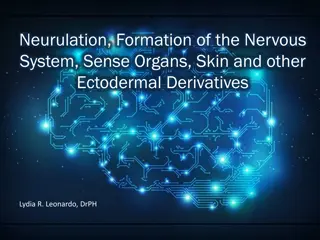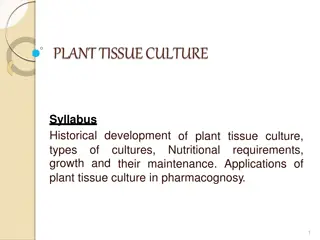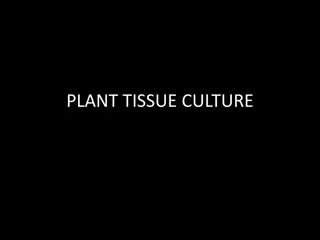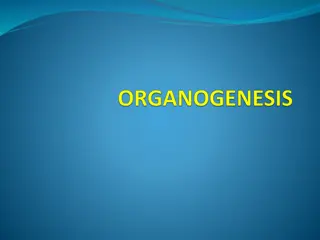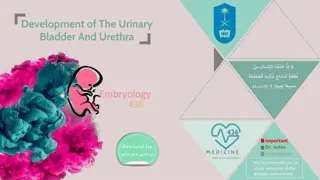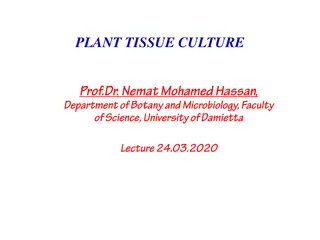Embryonic Development: Key Processes and Organization
Embryonic development involves neurulation, organogenesis, and morphogenetic processes that shape the nervous system, sense organs, skin, and other ectodermal derivatives. The embryo undergoes allocation and differentiation processes, influenced by epigenetic events and the action of organizers. Emb
2 views • 25 slides
Plant Tissue Culture: Historical Development, Techniques, and Applications
Plant tissue culture is an experimental technique that involves the in-vitro cultivation of plant cells to produce secondary metabolites, regenerate plants, and study organogenesis. This process allows for the maintenance of disease-free plant material, biosynthetic pathway tracing, and cell immobil
0 views • 21 slides
Understanding Plant Tissue Culture: A Brief Introduction
Plant tissue culture involves the in-vitro cultivation of plant cells or tissues under controlled conditions for various applications like the production of metabolites and plant regeneration. This experimental technique facilitates the production of callus from explant tissues, which can be used fo
0 views • 39 slides
Understanding Organogenesis in Plant Tissue Culture Techniques
Plant regeneration through tissue culture techniques such as organogenesis plays a vital role in micropropagation and organ production. Factors affecting organogenesis include donor plant growth, culture medium, growth regulators, and environmental conditions. Chemical regulation and the use of epid
0 views • 10 slides
Development of the Urinary Bladder and Urethra in Embryology
Understanding the embryonic development of the urinary bladder and urethra involves studying the formation of the cloaca, division of the urogenital sinus, absorption of mesonephric ducts, position and fate of the urachus, and anomalies related to these structures. The cloaca, primitive urogenital s
0 views • 14 slides
Understanding the Impact of Drugs on Pregnancy Development
This lecture covers factors influencing placental transfer, harmful effects of drugs at different developmental stages, FDA classifications of drugs, and teratogenic drugs. It explains how drugs cross the placenta, including physiochemical properties and stage of development affecting transfer. The
0 views • 10 slides
Understanding Plant Tissue Culture and Regeneration Pathways
Plant tissue culture techniques such as Organogenesis and Somatic Embryogenesis play a crucial role in regenerating whole plants from meristem cells. The process involves the formation of organs directly from explants or callus structures and the production of adventitious organs like roots, shoots,
1 views • 34 slides
Understanding the Three Stages of Pregnancy: Ovum, Embryo/Organogenesis, and Fetus
The journey of pregnancy involves three distinct stages, each crucial for the development of the growing embryo. The ovum stage marks the attachment of the blastocyst to the uterus, followed by the embryo/organogenesis stage where tissues and organs begin to form. Lastly, the fetus stage sees the de
0 views • 11 slides
